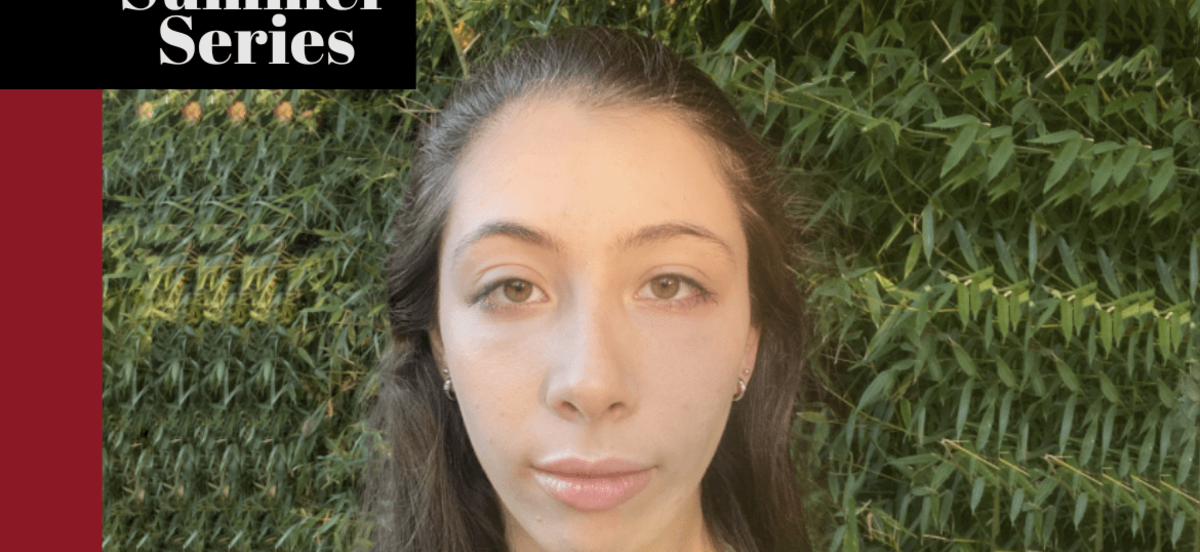Summer Series 2023: T. Gentner Lab, UCSD

Details
Funding Source: Liberal Arts in the Workplace Grant
This summer I’m working as a research assistant in the lab of Timothy Gentner at the University of California San Diego, studying the neural mechanisms underlying musicality and acoustic processing in songbirds. The Gentner lab uses the robust vocal production and discernment capabilities of European starlings to ask questions about the acoustic drivers of female song preference, neural representations of song, behavioral mechanisms upstream of auditory cognition, and more. I came to the lab with an interest in the neural networks governing female preference, and my summer internship, made possible through the Liberal Arts in the Workplace Grant, has introduced me to new methods and perspectives for pursuing the questions I intend to devote my career to researching.
My project at the Gentner lab involves revitalizing an experimental paradigm that hasn’t seen the light of day since 2000. There’s always someone in the lab fabricating the unique equipment and writing the specific code necessary to make experiments happen, and for the first few weeks of my internship I was that person. I learned many new skills, from electrical engineering to 3D printing to coding in Linux. Now that the experiment is set up, I have all the necessary tools to replicate it later in my career – and I expect I will!
As fun as it is to design circuits and use power tools, the interesting part began when we started live trials. I assist in handling the birds, collecting data, and maintaining the experiment. Since we need to ensure that the paradigm is operating correctly before running novel behavioral experiments, we have a great opportunity to utilize the Gentner lab’s unique electrophysiology technique for recording the neural activity of awake, behaving birds. This is the step I’m most excited for, when I can relate pre-existing experience with avian behavior to the neural mechanisms upstream of it. To ensure that the electrophysiology probes are recording from the right areas, I’m also learning how to freeze, slice, stain, and image the brains, which will be my responsibility at the completion of live trials.
While the new paradigm project is spearheaded by my mentor and me, my experience in the lab has been the product of all its members. New steps in the experiment have incorporated guidance beyond my mentor’s: one person is the authority on electrical engineering, another knows how to operate the cryostat, and all may be called upon to volunteer their tweezers in lieu of the pair that is constantly missing in action. Constructing the perches was something of a public affair, and many of the other members who had dealt with similar experiments weighed in on how the birds would react to different models. The level of cooperation, even when working on separate projects, has been key to everyone’s success. If there is one thing to know about a lab going in, this is it.
The balance of cooperation and individual initiative that animates the Gentner lab has been the defining theme of my internship. Science is an inherently social endeavor, and turnaround of both projects and personnel makes the sharing of skills deeply important. But every lab member needs to be able to function independently and bring something to the table. Even as a summer research assistant, I’ve been given a lot of freedom, and inextricably responsibility, to make my own contributions: I chose my project and mentor, and that mentor has guided my work without holding my hand. I’m often assigned a task, told where the required tools are if I don’t already know, encouraged to ask questions or look up an online tutorial, and left to my own devices. There’s also the freedom of choosing what I want to make of this summer internship, with the expectation that I’ll have a clear vision and the initiative to make it happen. I proposed the inclusion of electrophysiology and brain imaging in the behavioral project, and I was responsible for reaching out to the lab member who could teach me the necessary skills. The environment that the Gentner lab has fostered, where self-advocacy is welcomed and self-sufficiency is cultivated and expected in turn, has been incredibly meaningful in shaping my summer internship.
My summer experience has been incredibly valuable as a trial run for the type of lab I want to join in graduate school and beyond. It’s one thing to want to research the neural mechanisms underlying female songbird preference; it’s another to have a range of tools I could deploy to research these questions and the confidence of knowing that I’ve done this work independently. Following years of studying cowbird behavior, I’m also learning these things in the context of a new model system with its own unique insights and challenges. My internship at the Gentner lab has armed me with skills to sharpen my research interests and to pursue them with rigor, and I’m grateful to the Liberal Arts in the Workplace Grant for enabling me to make the most of this opportunity.



